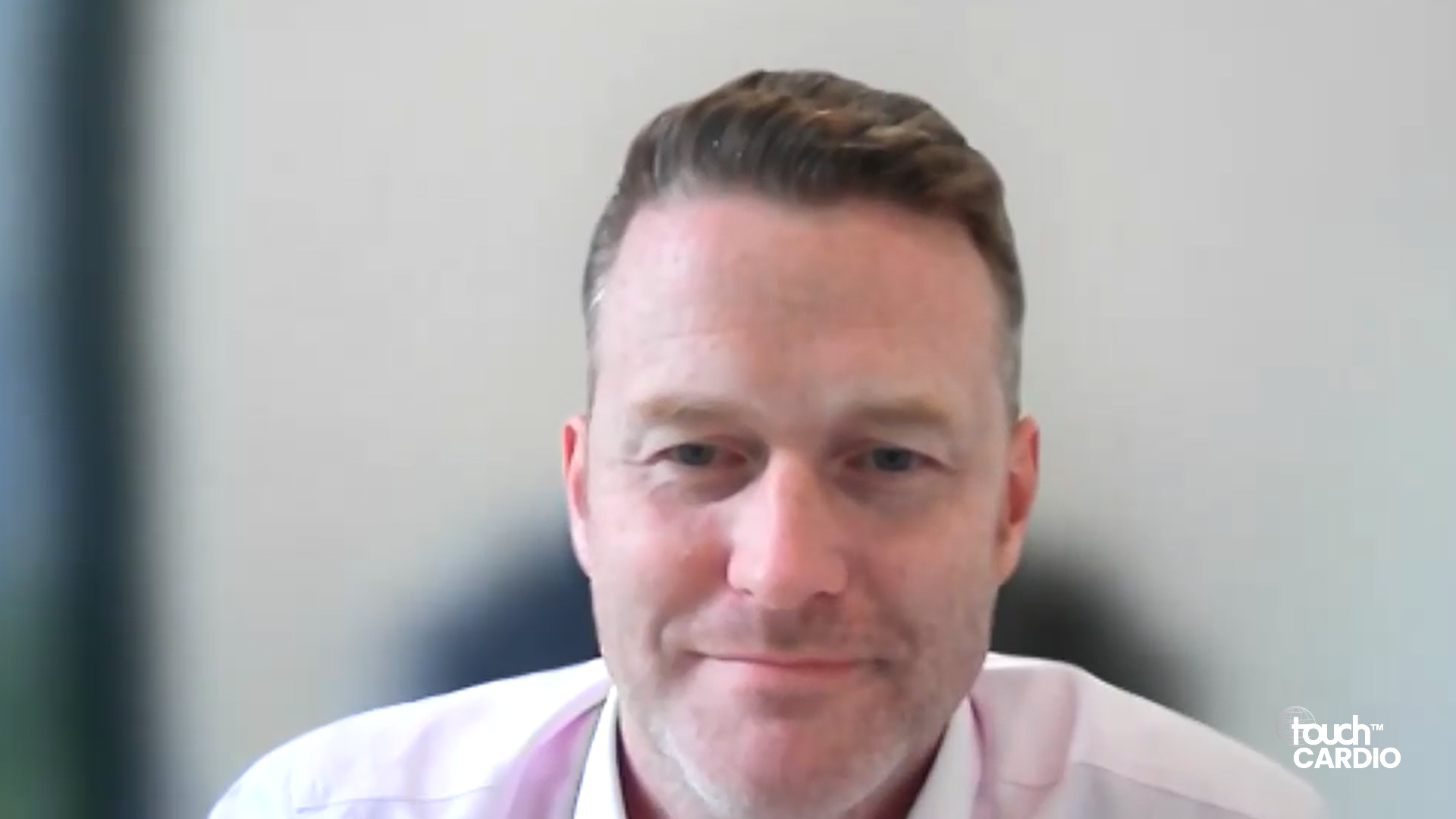ESC Congress 2023 Amsterdam: Ross Campbell, OPERA-AI trial, handheld echocardiography in suspected heart failure
Presented at the European Society of Cardiology Congress (ESC Congress) 2023 Amsterdam, the OPERA-AI trial compared the use of handheld echocardiography analysed by artificial intelligence (AI) to ‘cart-based’ echocardiography reported by humans, to help diagnose suspected heart failure. In this touchCARDIO interview, we speak to Dr. Ross Campbell (University of Glasgow, Glasgow, UK) to discuss the use of AI in handheld echocardiography, including the study findings, and the benefits and challenges AI could bring.
The presentation entitled ‘OPERA – AI – reporting of handheld echocardiography in suspected heart failure’ was presented at the European Society of Cardiology Congress (ESC Congress) Amsterdam, 25–28, August 2023.
Questions:
- Could you provide a brief overview of the importance of early, accurate diagnosis of heart failure? (0:26)
- What is the role of handheld echocardiography in heart failure diagnosis, and how does it differ from traditional methods? (1:05)
- What were the aims, design and eligibility criteria of this study? (1:56)
- Based on the study findings, how does AI’s accuracy compare to human interpretation? (3:30)
- In your opinion, what benefits and challenges does AI bring to this process, and how could this impact future diagnoses? (4:28)
Disclosures: Ross Campbell has no actual or potential conflicts of interest in relation to this video, or in connection with the (EFPIA) HCP Code.
Support: Interview and filming supported by Touch Medical Media. Interview conducted by Zoë Sidwell.
Filmed as a highlight of ESC Congress 2023.
Transcript:
My name is Ross Campbell. I’m a Consultant Cardiologist and Senior Clinical Lecturer at the University of Glasgow. My areas of interest and expertise are heart failure and cardiac imaging, that is, echocardiography and cardiac magnetic resonance.
Q. Could you provide a brief overview of the importance of early, accurate diagnosis of heart failure?
Most patients with heart failure are diagnosed late. What I mean by that is they often have insidious symptoms, which can be present for many weeks and months, and then they present with more advanced symptoms which require hospitalization. That is often the first time that we are able to diagnose heart failure. So I would call that a delayed presentation, and what we are trying to do is move the diagnosis away from the hospitalization, and that’s to intervene before a patient is hospitalized.
Q. What is the role of handheld echocardiography in heart failure diagnosis, and how does it differ from traditional methods?
Handheld echocardiography is, or it can be used as a screening tool to decide who needs to have or what patients require to have a fuller echocardiogram. So the potential advantages of it would be increased access to it, these are cheaper, they are more portable, could in theory be used outside of say secondary care hospital settings, and, ultimately, they can potentially, by increasing the access to echocardiography, reduce the waiting times for that test in theory, reduce the time to diagnosis for heart failure.
Q. What were the aims, design, and eligibility criteria of this study?
The aims of the study were to test the performance of an automated analysis of handheld echocardiography using a software called Us2.ai automated analysis compared to the standard echocardiogram, which is a larger echocardiogram of heart beat analyzed by two human sonographers. The design of the study were that we performed two echocardiograms. This a prospective study, so that in retrospect can look at lot of patients, we can effectively then take patients to take part in the study. The two echocardiograms is one handheld scan and then one conventional at a standard of care scan, and then we compared the handheld scan result analyzed by AI to the standard of care full echocardiogram. We invited participants who were being referred to the clinical heart failure diagnostic pathway. To participate in this, we had very broad inquiry criteria. So if they were referred by their GP, the clinical inspection of heart failure, and they were eligible to participate if they were able and willing to provide consent, and so they had to have clinical signs or symptoms of heart failure as an elevated natural peptide.
Q. Based on the study findings, how does AI’s accuracy compare to human interpretation?
So that is the primary aim and objective of the study was to compare to AI analysis of the handheld scan compared to two human analyses, present day sonographers’ analysis of the handheld scan, and we used a metric called individual equivalence coefficient, and this specifically measures the variation between one text and the other, and we found that the individual equivalent coefficient was very favorable in terms of the handheld AI analysis. That’s such that we would say that the Us2.ai left in regular ejection fraction from handheld images was interchangeable with the human heart-based or tool echocardiogram analysis.
Q. In your opinion, what benefits and challenges does AI bring to this process, and how could this impact future diagnoses?
I think one of the key potential benefits of AI here are in accelerating the diagnosis of heart failure, and the way that might be possible is to reduce the time for the laborious parts of the process of handheld echocardiogram, which generally before this would take 30 minutes, even longer for some reporting. With AI analysis, this can be reduced to a few minutes. I think there’s great potential to greatly accelerate the workflow, and if we can accelerate the workflow, it could be that we get through more scans. If we can get more scans, we can reduce the waiting time to have that scan and therefore reduce the time to diagnosing heart failure.
Watch more content from ESC Congress 2023 in Amsterdam here.
If you’re interested in seeing more about colchicine, you may be interested in our similar video content:
Artificial intelligence for prediction of atrial fibrillation: Shaan Khurshid, AFS 2023
You may also be interested in our similar journal content, published earlier this year in Heart International:







